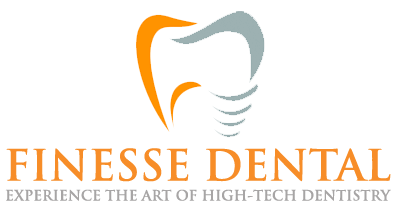There are many different ways to treat teeth with braces. And you know that the best treatment will depend on what’s wrong.
Let’s discuss some of the different types of orthodontic treatments to understand why they are often thought of so we can figure out how they can cause gum recession.
1. Dental Braces
Dentists use dental braces to fix how the teeth are lined up and straighten them. Braces push on the teeth to move them in the direction you want.
The three main types are metal braces, lingual braces, and self-ligating braces.
Metal braces are the most common of these three options. The dentist fixes metal braces to the teeth and uses a metal wire to put corrective pressure on the teeth. Lingual braces are located on the inside of the teeth and work just like metal braces.
Self-ligating braces are different from metal braces, which hold the metal wire in place with small elastic bands. They are easier to clean, and you will need to see your dentist less often.
2. Invisalign
Invisalign is perhaps one of the best if you want an invisible aligner. It has the same effect on teeth as braces but is not as popular as braces. It is clear, which is why it is called “Invisalign.” It is easy to wear and can be used by many people. The only problem with having an Invisalign is that it costs a lot of money.
3. Retainers
As the last step in straightening teeth, dentists often recommend retainers. Most of the retainers that are prescribed can be taken out and put back in.
Retainers are made based on the patient’s teeth and jaw shape, meaning each patient’s retainer is unique to them. Retainers keep the teeth in a specific position and ensure they stay that way. Professionals strongly recommend that those with retainers use it regularly to ensure that the orthodontic treatment works as well as possible.
Gum recession happens when the gums around teeth wear away or get pushed back. This process makes the top part of your tooth, the root, visible. Normally, your gums cover and protect the root. As the roots of your teeth are exposed, many people say their teeth are more sensitive to hot, cold, spicy, sweet, or acidic foods.
So, how can you tell if you have gum recession? Tooth sensitivity is one of the first and most common signs. Visually, your teeth may look longer than they did before, and the part of the tooth near the gumline may look darker.
Gum recession is prevalent and can happen so slowly that many people don’t even realise they have mild gum recession. In severe cases, though, it can be bad for your oral health and make you more likely to lose teeth.
Even though orthodontic treatments like braces can give you a beautiful smile by fixing your bite and straightening your teeth, they can sometimes cause your gums to recede.
With braces, the teeth are pulled out of their natural position and into a new one. Also, braces put constant compressive forces on the jawbone, which can cause swelling and bone loss.
In this case, the gums also move toward the bone, which causes the gums to recede. However, this is not always the case as other factors can contribute to your gums receding.
You might be hurting your gums without knowing it. And if you are not wearing any orthodontic appliances, here are some ways you could hurt yourself and cause your gums to recede:
1. You are brushing the wrong way.
Damage to the gums can come from the toothbrush, food, or piercings. Bacteria can get under the gums and cause pain if the root surfaces are exposed. Foods can hurt soft gum tissue, piercings can rub against the gums too much, or you could hurt yourself by brushing too hard. To get rid of plaque, you must brush your teeth with a soft, gentle massaging motion.
2. You have poor oral hygiene.
The plaque buildup on your gums and teeth can hurt your gums, which makes them shrink. In the process, your gums pull away from your teeth, allowing new spaces where plaque and bacteria can flourish.
3. You grind your teeth.
If you grind your teeth too much while you sleep or during the day, you could cause your gums to shrink. If you grind your teeth without realising it, you may cause your gums to recede over time. The gums become inflamed, which puts even more stress on your teeth and gums.
Make sure you have this treated as it can lead to periodontal disease, which can make teeth loose or cause tooth or bone loss.
4. You have gum disease.
Gingivitis is gum disease that occurs when plaque and bacteria build up around, on, and between teeth. Gingivitis shows up as redness and swelling, tooth pain, bleeding gums, and gums pulling away from the teeth. In the absence of treatment, this problem will worsen, which will then result in tooth loss.
5. You are a chronic smoker.
Gum disease can happen if you smoke. Because smoking makes the body less resistant to illness, it is harder to fight infections like gum disease. If the gums are already hurt, smoking makes it harder for them to heal.
Have you always wanted to achieve the smile of your dreams but are too hesitant to do so? To get professional advice on whether you should or should not get orthodontic treatment, you always have the option to seek it from the experts at Finesse Dental.
Nothing beats the advice of the professionals, so go ahead and read more of our services at our website https://finessedental.com.au. Contact us on (02) 8806 0790 or at info@finessedental.com.au and let our dentists in Blacktown or dentists in Castle Hill create that perfect smile you’ve always dreamed of!

